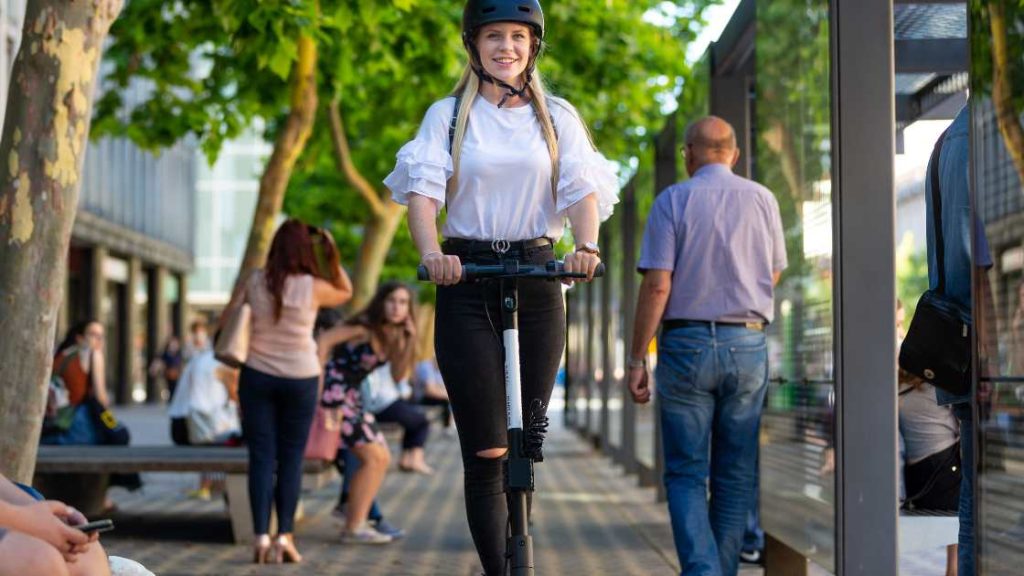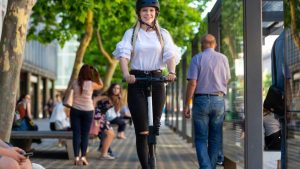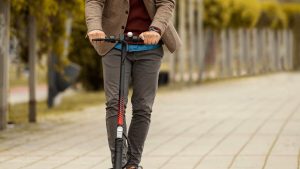If You want to know “Can You Drive An Escooter Without License?” Driving escooter does not require license but maintain local regulation for traffic.
Escooters have surged in popularity, combining convenience with eco-friendliness, and have become a staple in urban commuting. However, many potential riders wonder about the legalities involved, specifically whether a driving license is necessary to operate one.
Usually, these lightweight, electrically-powered scooters are exempt from the licensing requirements that apply to motor vehicles.
Nevertheless, this can differ based on jurisdiction, with some areas imposing age restrictions or mandating helmet use. It’s essential to acquaint yourself with the local laws governing escooters to ensure compliance and safe riding.
Before you hop on an escooter, do a quick check with your city or town’s transportation department – it’s the best way to avoid any legal hiccups and enjoy your ride worry-free.
Table of Contents
ToggleLegality Of Escooters On Public Roads
Exploring the rules for Escooters is necessary before hitting the road. Laws vary widely, and riding without the right info could lead to trouble. Knowledge is power when it comes to Escooters. Let’s dive into the legal landscape.
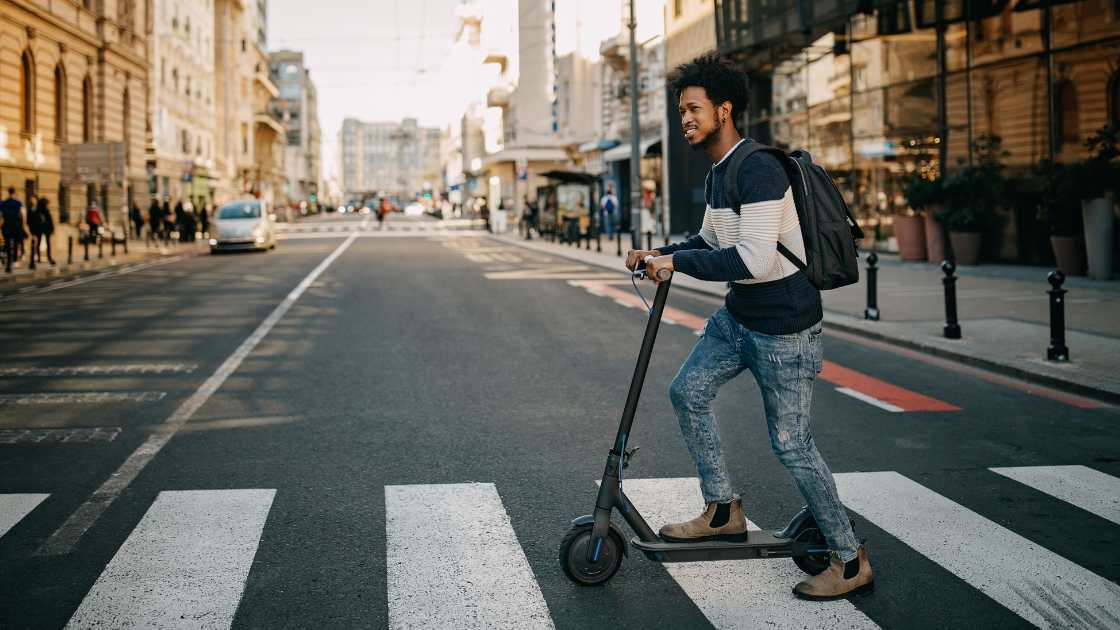
Assessing Varied Jurisdictional Laws
The rules for eScooter use change from place to place. It’s vital to check local laws before you ride. Many areas allow eScooters, but some have strict regulations or even bans. Always stay informed to ride safely and legally.
- Check city and state regulations
- Look for eScooter-specific laws
- Understand the fines for rule-breaking
Escooter Classification And Legal Operation
An eScooter’s classification can affect how it’s used. Many places categorize them like bikes, while others have unique rules. Know your eScooter’s class to follow the right guidelines. Ride smart by the legal requirements for your eScooter.
| Classification | Requirements | Rider Rules |
|---|---|---|
| Bike-like | No license needed | Follow bike paths |
| Motor vehicle | License may be required | Use vehicle lanes |
License Requirements For Escooters
eScooters glide through city streets, promising a swift commute without the usual hassle. But before hopping on one, understanding the license requirements is important. Not every rider needs a license, and rules vary based on location, eScooter power, and rider age. Let’s dive into the specifics.
When Do You Need A License?
Licensing rules for eScooters hinge on one factor: vehicle classification. For lower-powered models, no license might be necessary. Up the power or speed, and authorities could ask for a valid driver’s license. Riders must check local laws as they change from place to place.
Age Restrictions And Licensing
Safety comes first, and age plays a big part. Typically, riders under 18 years must possess a valid license or permit. The specifics, however, can vary:
- Minimum Age: Often set between 16 to 18 years.
- Training Wheels: Younger riders might need a safety course completion.
- Supervision: Sometimes, an adult must accompany minors.
| Age Bracket | License Required? | Additional Conditions |
|---|---|---|
| Under 16 | Varies | Parental consent, safety gear, limited power/speed |
| 16-18 | Usually | Safety course, helmet use |
Comparing Escooters With Traditional Vehicles
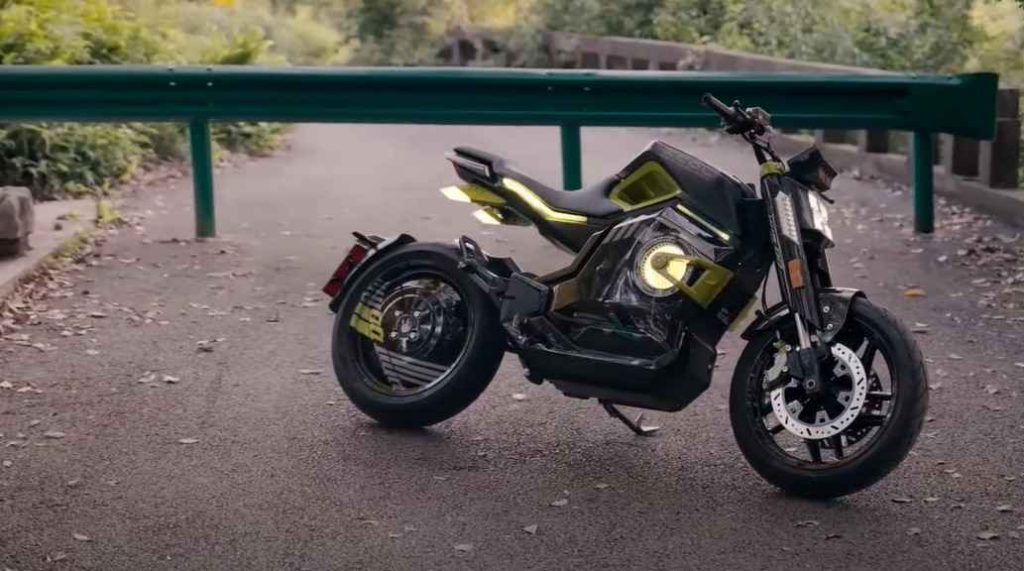
Electric scooters and traditional vehicles serve our transportation needs. Yet, they follow different rules. Let’s dive into how these rules change the game for eScooter riders.
Speed And Power Limitations
Understanding an eScooter’s speed and power is key. These factors dictate whether you need a license.
| eScooter | Traditional Vehicle |
|---|---|
| Top speeds capped | High speeds achievable |
| Motor power limited | Powerful engines |
| No license for low speeds | License always required |
- Check local laws for specific speed caps.
- If an eScooter goes over the limit, a license might be a must.
Road Access Differences
eScooter road access can be limited. They fit urban environments where cars may not.
- eScooters mostly use bike lanes.
- Cars drive on all public roads.
Remember, eScooters keep off sidewalks in most areas. Your local area decides where eScooters can go.
Insurance And Registration For Escooters
Knowing the rules about eScooter insurance and registration is key. Before hopping on an eScooter, it’s crucial to understand these requirements. They safeguard both the rider and the public. Different areas have varied laws concerning insurance and registration for eScooters. Let’s dive into the details.
The Need For Escooter Insurance
eScooter insurance is vital for rider protection. Accidents can happen. Insurance covers potential costs from these incidents. This might include damage repair or medical bills.
- Protection against liability in case of damaging property or injuring someone.
- Coverage for theft, which is essential given the portability of eScooters.
- Personal accident coverage ensures that as a rider, medical costs are taken care of.
Registration Protocols In Different Regions
Registration rules differ widely across regions. Some places require registration; others do not. It commonly depends on the eScooter’s maximum speed and power.
| Region | Max Speed for Registration | Required Documents |
|---|---|---|
| Region A | 20 mph | ID, Proof of Purchase |
| Region B | 25 mph | ID, Proof of Purchase, Insurance |
| Region C | No requirement | Not applicable |
Check local requirements before riding an eScooter. It ensures compliance and avoids unnecessary issues.
Safety Measures For Unlicensed Escooters
Navigating the road on an eScooter without a license requires careful attention to safety. To ensure a safe ride, gear up with the right equipment. Follow rules to keep yourself and others unharmed. Unlicensed doesn’t mean unprotected.
Recommended Gear And Accessories
Staying safe starts with proper gear. Consider these essentials:
- Helmet: Protects your head in case of falls.
- Lights: Increases visibility at night.
- Reflective Clothing: Helps others see you.
- Knee and Elbow Pads: Shields joints from injuries.
Road Etiquette And Safe Driving Practices
Adopting safe driving habits is vital. Here’s how:
- Know local traffic laws for eScooters.
- Keep to bike lanes where possible.
- Ride at safe speeds.
- Signal before making turns.
- Stay alert and avoid distractions.
Remember, safety is a shared responsibility. Ride with care, respect others on the road, and always be prepared for the unexpected.
Penalties For Unauthorized Escooter Use

Riding an eScooter may look like all fun and games, but it’s important to know the rules.
Not following the law can lead to trouble. Each country or state has its own
regulations about whether you need a license to ride an eScooter.
Breaking these rules can result in penalties including fines and legal action.
Fines And Legal Consequences
No license equals big problems. If you ride without permission, you might have to pay money. The cost can vary a lot.
| Offense Type | Possible Fine |
|---|---|
| No License | $50 – $200 |
| Riding on Restricted Paths | $100 – $500 |
| Speeding | $150 – $500 |
But fines are not the only thing to worry about.
You could also face legal charges. This might mean going to court. It could even lead to a criminal record.
Enforcement Tactics By Authorities
Authorities keep an eye out to make sure eScooter rules are followed.
- Police patrols in busy areas.
- Cameras watching for illegal riding.
- Using tech to track where eScooters are and how fast they go.
- Random checks for rider’s licenses.
If you’re caught breaking the rules, these enforcers will hold you accountable.
Play it safe and know the eScooter laws in your area.
Benefits Of A License-free Escooter Experience
Exploring the city on an eScooter just became a breeze. Without the need for a license, riders can enjoy the freedom of mobility. They can jump on an eScooter and zoom off to their destination. No tests, no paperwork, and no wait times. Let’s dive into the many perks of having a license-free eScooter ride.
Cost Savings On Licenses And Fees
Ditching the need for a license means you sidestep various expenses. No more costs for driving school, licensing exams, or renewal fees. A license-free eScooter experience keeps your wallet happy.
| License Requirement | Cost Without License |
|---|---|
| Driving School | $0 |
| Licensing Exam | $0 |
| Renewal Fees | $0 |
Ease Of Access For Short Commutes
For those quick hops around town, an eScooter is perfect. No lengthy public transport waits or battling for parking spaces. Grab an eScooter, and you’re on your way. It’s that simple.
- Convenient for everyday trips.
- Reduces reliance on cars or public transport.
- Perfect for last-mile connectivity.
Public Perception And Behavior Towards Escooters
The rise of eScooters has sparked varied reactions from the public. While some view these nimble transportation options as convenient and eco-friendly, others worry about their impact on public safety and city dynamics.
Let’s explore how eScooters are reshaping communities, from their acceptance to their effect on urban congestion.
Community Acceptance Levels
Community acceptance is a vital piece of the eScooter puzzle. Residents’ feelings towards eScooters often fluctuate based on their experiences and perceptions.
Safety concerns, the vehicle’s appearance, and parking etiquette can influence public sentiment. A table showing acceptance levels:
| Age Group | Acceptance Level | Key Concern |
|---|---|---|
| 16-24 | High | Vehicle Design |
| 25-40 | Moderate | Convenience |
| 41 & Above | Low | Safety |
Impact On Public Transport And Congestion
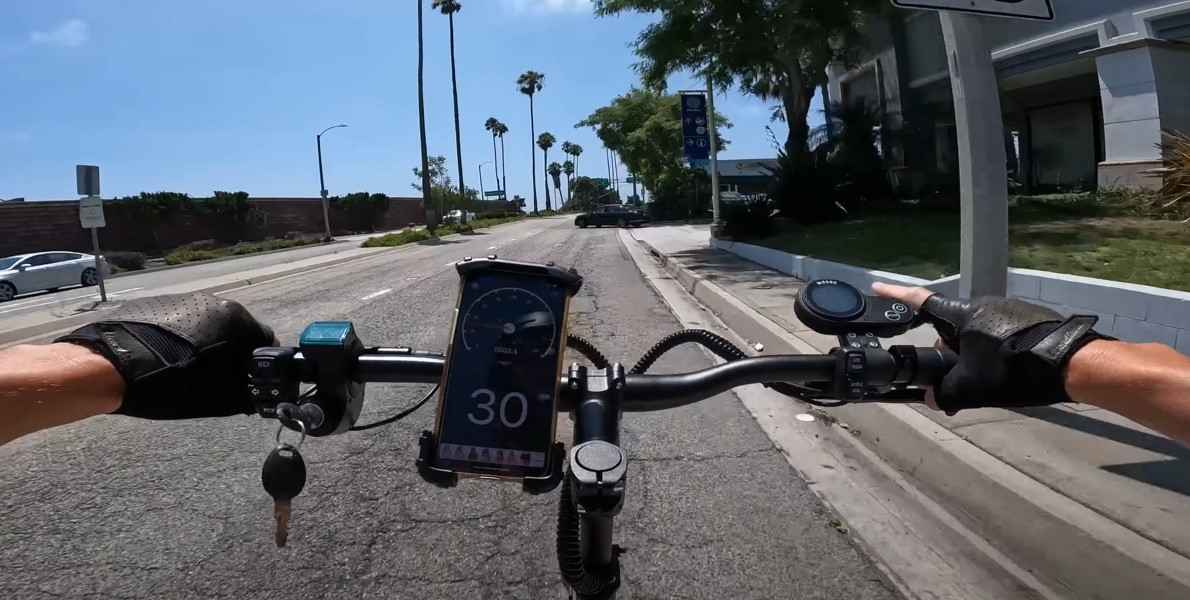
eScooters offer a dual promise of alleviating street congestion and easing public transport burdens. Urban areas recognize eScooters for their potential to reduce cars on roads. Yet, opinions differ on whether they complement or compete with existing public transport options. Insights into their impact:
- Eco-friendliness: eScooters reduce carbon footprints.
- Convenience: They offer last-mile connectivity.
- Space-saving: Smaller than cars, they take up less parking space.
Still, concerns linger about eScooters clogging sidewalks and competing with public transit for passengers. The effect on overall congestion is an ongoing debate.
Future Of Escooter Regulations
The landscape of urban transportation is rapidly changing with the advent of electric scooters (eScooters). As these nimble vehicles gain popularity, regulatory frameworks are evolving. Keeping pace with these changes is crucial for both riders and policymakers.
The future of eScooter regulations is a hot topic, as these policies shape the safety and legality of eScooter use across cities globally.
Potential Changes In Legislation
Legislative bodies worldwide are considering updates to eScooter laws. These could dictate whether a license is needed to operate an eScooter. Proposed changes may include:
- Age restrictions to ensure riders are mature enough to handle eScooters safely.
- Speed limits tailored to the design of eScooters, enhancing public safety.
- Mandatory safety gear, like helmets, for rider protection.
- Assessment of riding areas, distinguishing where eScooters can legally operate.
Such changes aim to integrate eScooters into urban landscapes without compromising pedestrian comfort and traffic order.
Technological Advancements And Their Implications
Technology drives eScooter evolution. Advanced features in development include:
| Feature | Implication |
|---|---|
| Geofencing capabilities | Regulate speed and restrict access in certain areas. |
| Smart locking mechanisms | Prevent theft and unauthorized use, enhancing security. |
| Automated diagnostics | Keep eScooters in optimal condition, ensuring rider safety. |
| Collision avoidance systems | Reduce accidents, protecting both riders and pedestrians. |
These technologies might push lawmakers to reconsider current regulations. They will likely shape the way eScooters integrate into the transportation ecosystem.
Frequently Asked Questions Of Can You Drive An escooter without License
What Are The Laws For Scooters In Texas?
In Texas, scooter riders must follow all traffic laws, use bike lanes when available, and scooters cannot exceed 35 mph. Riders under 18 must wear helmets, and scooters require proper lighting for night use. Riding on sidewalks is typically prohibited.
What Kind Of Scooter Does Not Require A License In Georgia?
In Georgia, scooters with a motor size under 50cc do not require a license. Ensure they cannot exceed 30 mph on flat ground.
Do I Need A License For A Scooter In Ny?
Yes, you need a license to operate a scooter in New York. The type of license required depends on the scooter’s maximum speed.
What Is The Difference Between A Scooter And A Moped?
Scooters typically have a step-through frame and an automatic transmission. Mopeds, on the other hand, are bicycle-like, with pedals and a low-powered engine. Scooters generally offer more power and speed than mopeds.
Conclusion
Wrapping up, navigating the e-scooter landscape requires knowledge of local laws. Licenses may not be mandatory everywhere, but safety and legality should always guide your choices. Stay informed, ride responsibly, and enjoy the convenience of these nifty vehicles within the bounds of the law.

